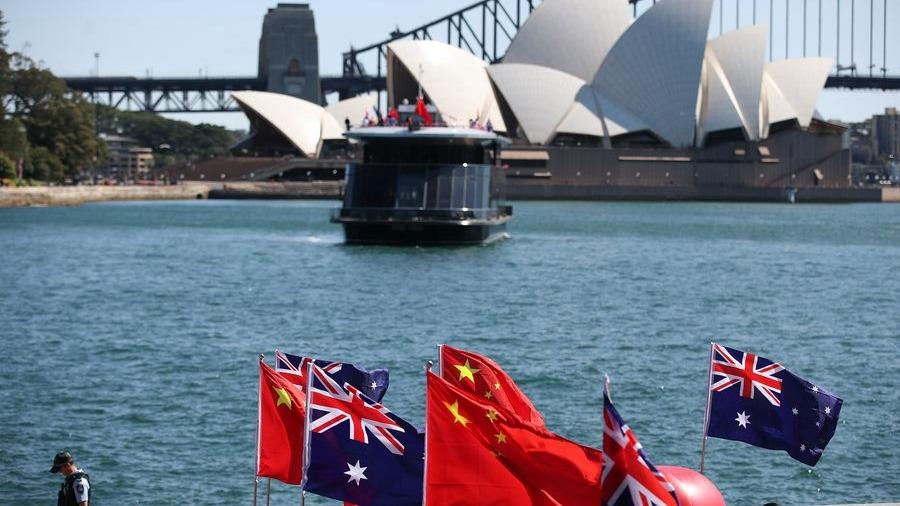 The Chinese and Australian national flags on a celebration event in Sydney, Australia, on Sept 8, 2019. (PHOTO / XINHUA)
The Chinese and Australian national flags on a celebration event in Sydney, Australia, on Sept 8, 2019. (PHOTO / XINHUA)
It is a certainty that Australian Prime Minister Scott Morrison, who is seeking reelection, will play the anti-China card in the run-up to the federal election to be held on May 21, given his government's a slew of anti-China policies that have poisoned his country's ties with China during his time in office.
In its most recent hyping up of a threat from China, his government has mounted pressure on the Solomon Islands to ditch a security cooperation agreement reached between the Pacific island country and China.
On Wednesday, Australian Minister for International Development and the Pacific Zed Seselja started a two-day visit to the Solomon Islands to "discuss" the security pact. Although the visit is more likely to once again see Australia assume its habitual role as the "South Pacific bully".
Thanks to his government's continuous manipulation of China-related issues to sidestep his lack of solutions to address Australia's domestic woes, some Western media have suggested that China will be the prominent issue for whoever wins the election.
While Morrison has come forward to lead the ill trend of stoking anti-China hostility in Australian society, China is just a convenient scapegoat for Australia's domestic problems for which his government and the opposition seem to have no solutions.
Many Chinese feel disgusted about the political farces staged one after another in Australia in which the China-bashers stir up anti-China sentiment by unfairly portraying its biggest trading partner as posing an economic and security threat to Australia, and cherish the hope that whoever wins next month's election will do more to cultivate a healthier environment for bilateral cooperation, rather than harming them further.
In any analysis, the United States will feature prominently in Australia's latest round of anti-China frenzy, as Washington has been encouraging Canberra to contribute more to its strategic competition against China. To implement its Indo-Pacific strategy and strengthen military deterrence against China, the US has given the Quadrilateral Security Dialogue with Australia, India and Japan a more prominent role and created the AUKUS alliance with Australia and the United Kingdom.
Washington needs the "China threat" theory and its Cold War mentality to salvage its declining global clout. But how does Australia benefit from jumping on the US bandwagon to contain China's rise? This is a question that should be raised and answered during the election.
One thing the candidates might want to consider is that some US companies, together with some of their Western counterparts, have lost no time in seizing the market share that Australian exporters have left in the Chinese market in recent years as a result of the Morrison government's souring of relations with China.
Fostering what used to be prosperous trade ties with China will serve Australia's interests. Those campaigning might want to reflect on how they would do that rather than competing to see who can smear China the most.


